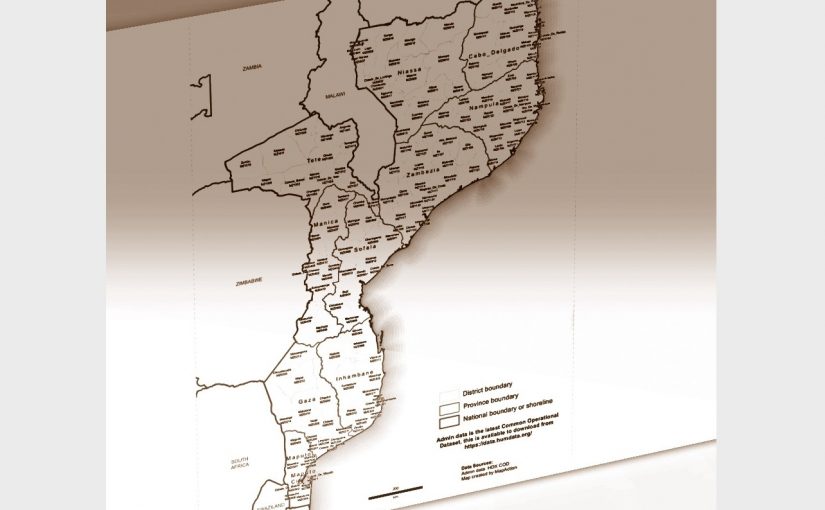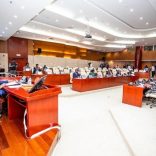Mozambique: Renamo members attack Renamo office in Nacala - AIM | Watch
Commission on District Elections’ document defends postponement | Mozambique

FILE - For illustration purposes only. [in file CoM]
The Commission to Reflect on the Viability of Holding District Elections in 2024 in Mozambique defends the postponement of the ballot, reasoning that the country is not yet prepared for the creation and functioning of elected District Governments and Assemblies, Lusa report today.
This opinion of the Commission – created by the Government in early April – is given in a preliminary document produced by the entity and read by Lusa on Tuesday (25-04).The opinion is based on “perceptions that members [of the Commission] had on the subject, debates within the scope of its work and the analysis of several existing studies on the subject”.
The study notes the need for a swift revision of the Constitution to accommodate the postponement of the first District Elections, scheduled for 2024, given that this vote, agreed within the scope of the peace accord between the government and Renamo in 2018, results from a provision enshrined in the country’s fundamental law, changed that same year.
READ: Nyusi suggests postponing district elections – Watch
“It is true that the Constitution should ideally be a crystallized document, but nothing prevents, when the circumstances so justify, respecting the material and temporal limits, the amendment of its provisions,” the Commission’s report maintains.
The Commission warns of the danger of “the challenges” faced in the decentralisation of Provincial governance with the 2019 elections being transferred to the Districts, if these territories have elections as early as 2024.
“The Districts are currently in a situation of double subordination, answering simultaneously to the Provincial decentralized bodies”, which are elected, “and to the Provincial bodies of State representation”, appointed by the central power.
“The District Elections scheduled for 2024 present the risk” of “spreading the challenges”, “with the aggravating factor that there is a greater probability that, in many cases, there will have to be coexistence between different organizations or political parties,” it points out.
On the other hand, there are risks of non-compliance between the legal package of decentralization and the fundamental law of the country, as is currently the case, with Provincial representation bodies enjoying powers that go beyond their limits, the document observes.
The Commission indicates that the experience in the Provinces has been marked by duplication and overlapping of competences and structures, lack of clarity and criteria for sharing material and human resources, and lack of harmonization of laws.
The Commission points to a risk of duplication of structures and competences at the District level also, which would necessarily lead to a significant increase in the financial effort needed to support the new bodies.
READ: ACLLN defends postponement of 2024 district elections
For the Commission, in order not to generate more controversy, the fundamental law should define that: “The first District Elections, under the terms foreseen in the Constitution of the Republic, take place as soon as the conditions for their realization are created”.
The Commission’s analysis agrees on the imperative of dialogue with the political forces of the opposition on the holding of the district elections, with the purpose of finding consensus around the issue.
It defends “a political agreement in which it is guaranteed that the parties that have the most votes [in the General Elections] in each District”, can “propose three names to the Ministry of State Administration and Civil Service for the position of Administrator”.
The Commission even says that “an identical practice was adopted by the former President of the Republic, Joaquim Chissano, following the 1994 elections, albeit not systematically”.
The Commission exhorts Mozambican society to immediately start a process of deep and inclusive reflection on decentralization, to be carried out without any pressure or political agendas, with the purpose of defining the country’s governance model.
This reflection should produce a foundational document for a more profound, comprehensive, consensual and definitive constitutional revision.
A week ago, the Council of Ministers decided to extend the Commission’s mandate from 15 to 45 days.
READ: Commission on District Elections: Govt extends 15-day deadline to 45
Mozambique: Postponing district polls is coup against democracy – opposition
Speaking to Lusa, the Mozambican National Resistance (Renamo), the main opposition party, and the Mozambican Democratic Movement (MDM), the third party in Parliament, have demanded the revocation of the Commission.
The opposition parties accuse the ruling Mozambique Liberation Front (Frelimo) of orchestrating a “gradual coup” by postponing the ballot.













Leave a Reply
Be the First to Comment!
You must be logged in to post a comment.
You must be logged in to post a comment.